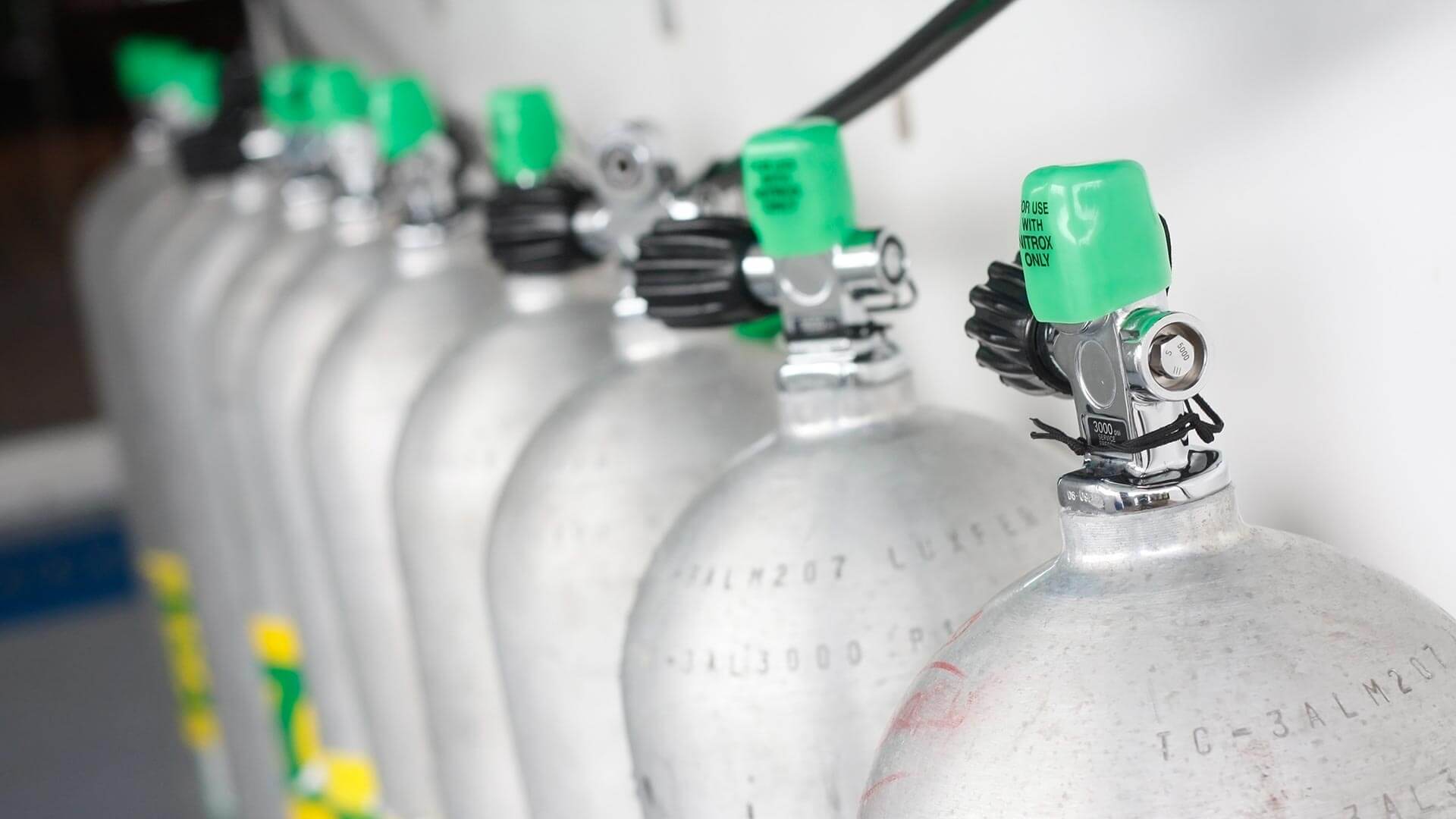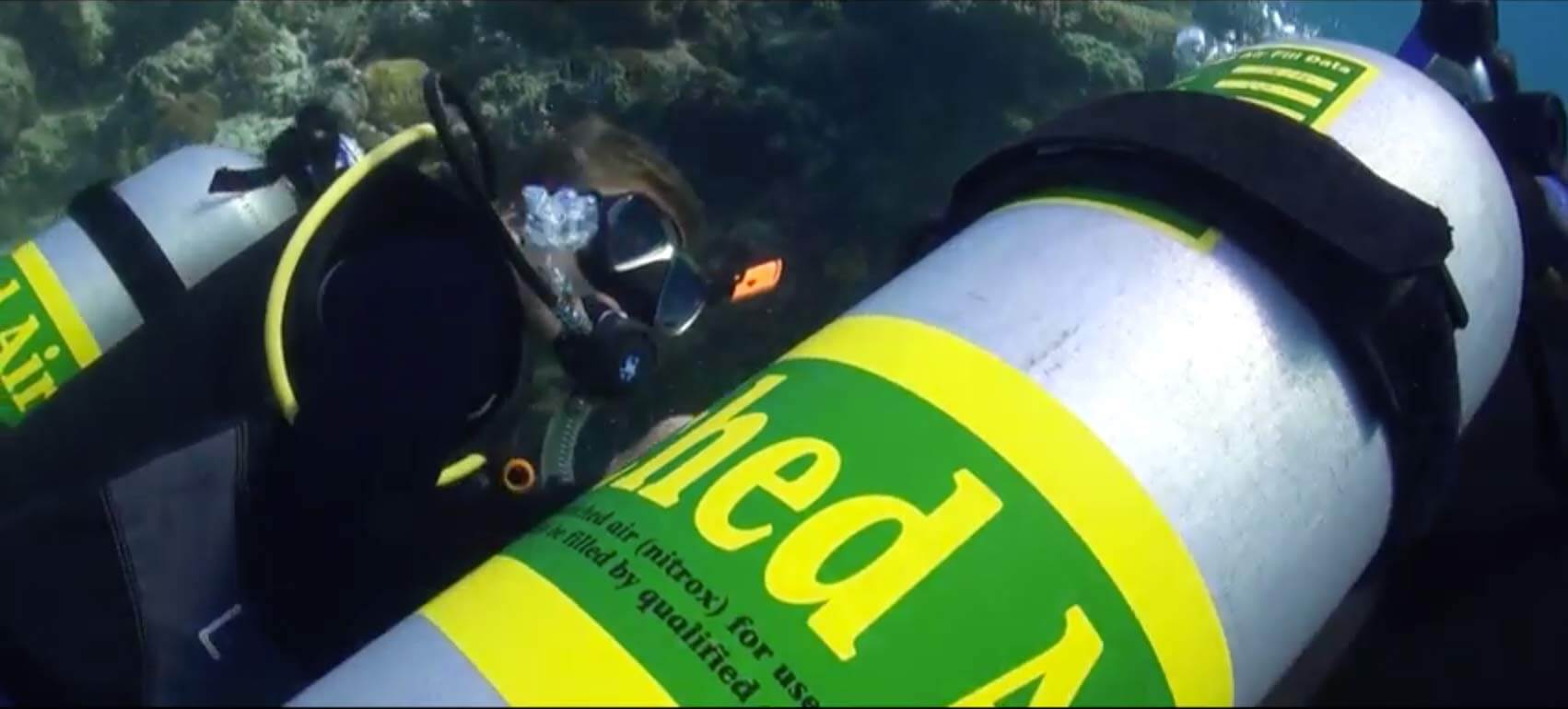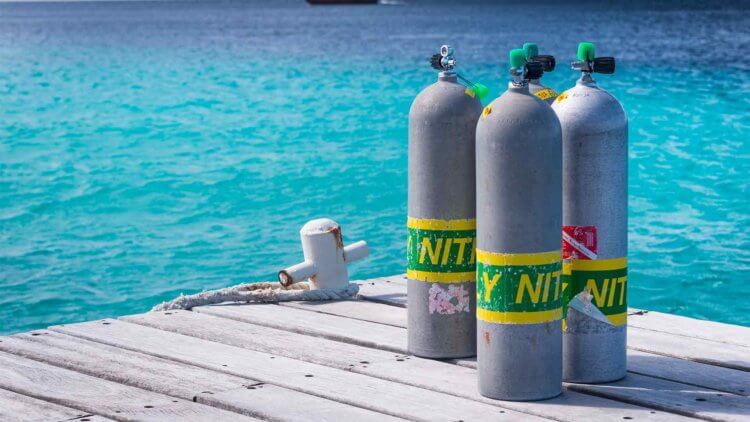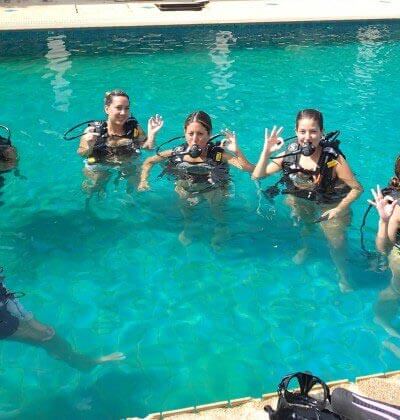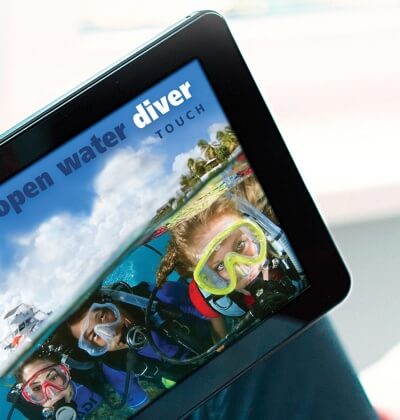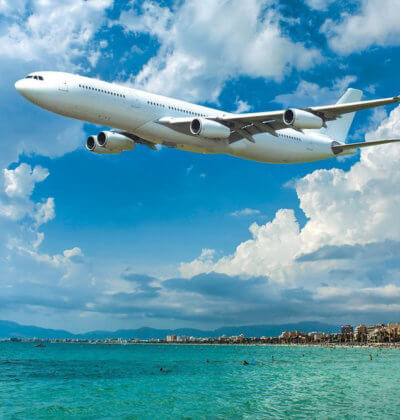Nitrox – What is it and What are the Benefits?
The air that we breathe on the surface and the air from a scuba tank have the same mixture gases (minus some trace elements of other gases). Air is essentially 21% Oxygen and 79% Nitrogen.
Nitrox is a term used for the mixture of nitrogen and oxygen. Recreational scuba divers use a blend of Nitrox that is usually a mixture of 21- 40% oxygen and 60-79% nitrogen.
A particular mixture of Nitrox is referred to by the percentage of oxygen in the mixture.
The most common blends of nitrox mixtures, Nitrox 32 and Nitrox 36 contain 32% and 36% oxygen respectively.
Air could be considered Nitrox 21 as it contains approximately 21% oxygen.
Often the terms “nitrox” and “enriched air” are sometimes used interchangeably, however they are not the same.
“Nitrox” refers to any mixture of nitrogen and oxygen, while “enriched air” refers to mixtures of oxygen and nitrogen that contain more than 21% oxygen.
You will need specialized training to use nitrox and Aussie Divers Phuket can provide that training for you with the PADI Enriched Air Diver course.
What are the benefits of using nitrox?
Book today – Become Nitrox certified
Longer Bottom Times:
The Nitrox we use in recreational scuba diving is between 21 and 40% oxygen, and contains a lower percentage of nitrogen than air.
This reduced percentage of nitrogen in recreational Nitrox allows divers to extend their no decompression limits or dive time by reducing the amount of nitrogen absorbed.
This means the less nitrogen there is in a diver’s breathing gas, the slower their nitrogen absorption will be at a given depth.
Here is a no decompression time comparison between Air, Nitrox 32 and Nitrox 36 for 18 metres.
Air (21% O2) at 18 metres your no decompression time will be 56 minutes.
Nitrox (32% O2) at 18 metres your no decompression time will be 74 minutes.
Nitrox (36% O2) at 18 metres your no decompression time will be 93 minutes.
Shorter Surface Intervals:
A diver who uses nitrox absorbs less nitrogen for a given depth and dive time than a diver using air.
This means that the nitrox diver does not have as much nitrogen to “off-gas” during a surface interval, which can shorten the required surface interval significantly.
Longer Repetitive Dive Times:
Nitrox becomes especially useful for divers who complete more than one dive per a day and is most commonly used on liveaboard adventures where it is common to do multiple dives per day.
A diver using Nitrox will have a longer allowable bottom time on a repetitive dive than a diver using air because the diver using nitrox has absorbed less nitrogen.
Reduced Exhaustion:
Many divers claim to feel less tired after a dive on nitrox than after a similar dive on air. By reducing a diver’s nitrogen absorption, nitrox may also reduce a diver’s post-dive exhaustion.
Aussie Divers Phuket can offer you the PADI Enriched Air Diver course at the cheapest price. We will provide tuition free, all you have to do is pay for the PADI manual and certification. The course is conducted in our classroom and often only takes 1.5 hours to complete. The course is made up of a short DVD presentation, a knowledge review and a quick quiz. We are able to analyze Nitrox in the classroom as well.
Book today – Become Nitrox certified
Posted in Courses on .

